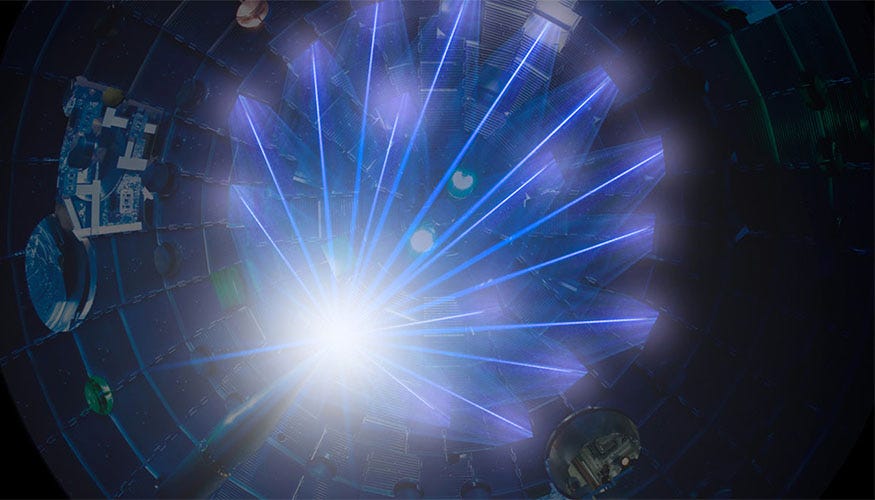
Every so often, an event breaks through the stasis of our news cycle in a way that challenges our frame of reference about what is news and what is ultimately important.
So much of what we discuss, fret over, and doom scroll is locked in quotidian concerns of our political world. Social media, with trending topics and viral memes, only fuels a general sense of myopia.
How much of what dominates our discourse day to day, minute to minute, even nanosecond to nanosecond, will be remembered next month, let alone next year or a century or a millennium from now? How many of the names that fill our headlines and occupy our consciousness will be relegated to footnotes in the history books of the future, if not completely forgotten?
News today out of Lawrence Livermore National Laboratory in California about a major scientific breakthrough should provoke such questioning and provide an opportunity to pause and reflect on the broader tides of human history.
The announcement that scientists have reached a key milestone in the long-held dream of nuclear fusion is rightly making headlines around the globe. This is a technology that is different from our current forms of nuclear power. That uses nuclear fission, the splitting of the atom, which produces prodigious amounts of radioactivity.
In contrast, fusion has the potential to create unlimited clean energy — no nuclear waste, no carbon, and no dependence on the vagaries of wind or sunlight. It would forever change the course of human society and our relationship with the planet.
Of course, the most important word in the paragraph above is “potential.” This is a critical step, but many engineering hurdles remain before this significant advance in research becomes an economically viable power plant that can be built at scale. There are some who believe that the potential might never be realized. At a minimum, the most optimistic supporters predict we are at least a decade away.
This is often how science works. We learn, and then we adjust our expectations on the basis of new knowledge. But knowledge doesn’t just spontaneously arise. It must be supported and cultivated. It must be a priority. The United States government has poured billions of dollars into fusion research. For years, when progress seemed elusive, that funding was often questioned. Today’s announcement represents vindication for the effort.
More broadly, it should be seen as a vindication for science. Yes, research is not cheap and we have many worthy causes competing for limited resources. But a commitment to basic and applied scientific research has strengthened the United States immeasurably.
Fusion is the process that our sun uses to produce the heat and light that make our planet hospitable to life. That we are now on the path to harnessing that energy is a testimony to the power of the human mind — and the importance of perspective.
Note: If you are not already a subscriber to our Steady newsletter, please consider joining us. And we always appreciate you sharing our content with others and leaving your thoughts in the comments.



Six months ago, i glanced at a book that had the word "quantum" in the title. It was on a free-to-read library table at my retirement community. I walked by, stopped, returned, and retrieved it. I haven't stopped looking for that word "quantum" since. Why I should be swept, at 84, into a world of atoms, neutrons, electrons and photons, I've no idea except that I've fallen, hard and fast, for sclence. I can't get enough of the Universe into my brain to go back to having a comfortable old age. This is why your essay on nuclear fusion excited me so. It makes me hope there are dozens, maybe hordes, of us suddenly paying attention to rapidly expanding gifts and discoveries of physicists and technologists -- not as chalk-dusted pedagogues but as poets. Heroes. Discovers. More science! More, scientists!
...........Waiting for the Republicans to decry this development and to stop funding immediately, because this would hurt their oil company buddies...........